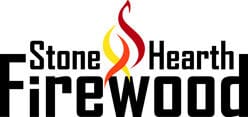The first cooking fuel – wood – has ancient roots (pun intended) and is still used to this day in pizza ovens and other wood-fired stoves. Loved for the sensational flavors that it lends to food, its competitors are the more modern fuel sources like charcoal briquettes or propane.
For every wood burning enthusiast out there, you'll find two others – a charcoal enthusiast and a gas grill enthusiast. The truth is - no one type of cooking fuel universally trumps the others. It really comes down to whether you prize flavor, convenience, or both. We'll go through each of the fuel sources so at the end you'll have a better understanding of who you want to crown King of your backyard cookout: Propane, Charcoal, or Wood.

PROPANE
Of the three cooking fuel options, propane is probably the most convenient and is used by many amateur chefs. If you properly maintain your gas grill, it'll provide you with easy and delicious meals for decades. While gas grills are popular because of the convenience, they've got some drawbacks. The flavor you get with a gas grill isn't nearly as tasty as charcoal or wood, since they're built with fairly modest smoker boxes that provide only a subtle smoke flavor. If you plan to smoke meats often, a gas grill isn't for you. A traditional charcoal or wood-fired grill will give you much more robust flavor. Another major drawback of gas grills is that they tend to be more a bit more expensive than charcoal grills.
CHARCOAL
Charcoal is a fuel that burns hotter than the wood that it's made from. This happens because the initial energy-consuming steps of combustion take place while making the charcoal – driving off volatile parts of the wood like water and sap.
Charcoal gets very hot and burns for a long time. As your meat cooks and drips on the charcoal, it will sizzle and send up steam to add more flavor to your food. Charcoal also causes a mouthwatering sear on meat – that browned outer layer that makes you want to sink your teeth in.
On the flip side, charcoal can be very messy. You have to clean your grill frequently because when the fire has gone out, it leaves a lot of ash and debris. It can also be dangerous to cook with, because charcoal embers stay hot for such a long time. Some other negative sides to cooking with charcoal are that it takes a long time to heat up, is more expensive than propane, and doesn't always burn evenly. It's difficult to control the temperature of the grill when cooking with charcoal, and this is one of the big reasons people choose wood or propane over charcoal.
WOOD
Wood grills can be a bit more complicated and challenging. However, many people who've taken the plunge and invested in one wouldn't dream of going back to gas or charcoal. Wood-fired grills produce some incredible flavors that you just can't achieve with other grills.
When it comes to a wood-fired grill, by far the most important part of creating world-class flavor is the type of wood used. First of all, you want to make sure you're cooking with kiln dried wood. Kiln dried firewood is the highest quality firewood you can get. Chefs all across the country go with this option because the kiln-drying process kills all bugs, mold, and mildew.
Always use hardwoods when cooking with wood, because softwoods – like pine – have a resin that creates rather unpalatable-tasting soot. Fruitwoods like cherry and mulberry will give just a touch of sweetness. Nut woods like pecan or walnut will give your food a rich and savory flavor. Mesquite, hickory, and oak are also quite common for BBQ because they create such great flavor.
Get a couple of wood burning chefs together, and you'll never hear the end of how wood smoke lends an undeniably delicious flavor to food. However, there are others who say it's notoriously difficult to work with. It also takes a long time to cook meat, so if speed is your priority, a wood grill is probably not for you. Other than the time, the other thing that makes people shy away from this option is the cost. Wood fired grills cost slightly more than gas grills, making them the most expensive choice of the three (typically – although there are small, portable, cheap options.) It's also not the most convenient of the three. But, if you're looking for a world-class flavor and sear that you can't get any other way, a wood-fired grill is the option for you.
So now you can see the benefits and drawbacks of propane, charcoal, and wood-fired grills. We hope this article has given you enough information to skip right past the experimentation stage and choose the grill that's right for you. If you're new to grilling, remember that every great BBQ chef got where they are through trial and error. Play around with different cooking methods to find out what sort of different flavors you can create. You'll be a Master BBQ Chef in no time!
